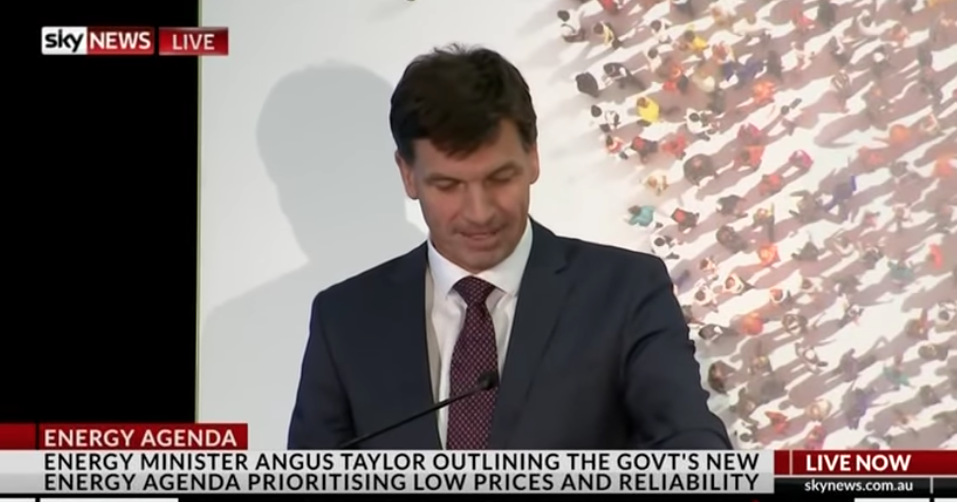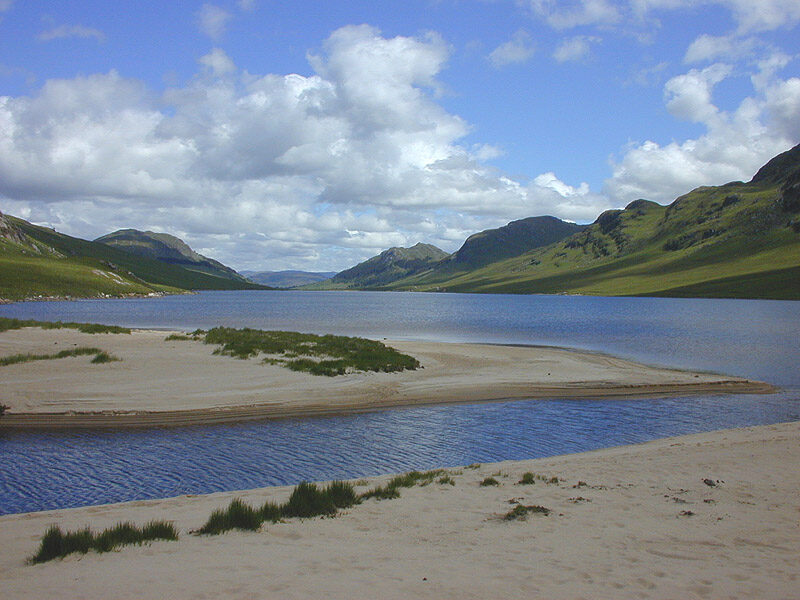Climate change is real, but we’re doing nothing about it: A rough summary, but largely accurate. While Angus Taylor’s first speech as Energy Minister was full of something, action on emissions reduction it was not.
Precisely how Taylor intends to “create an environment where there is sufficient confidence and incentive to invest”, while at the same time threatening market participants with divestment if they don’t “work with us to get wholesale prices down” is unclear.
This is particularly so, as market participants in the sector are well aware that planning for an emissions-restrained future is necessary, given international efforts to reduce climate emissions – such as the Paris Climate Accord, to which the Abbott Government signed up.
What the government is actively looking to do is support existing generators, read coal clunkers, to stay in operation, supposedly to maintain generating capacity in the wholesale market. The Commonwealth Energy Minister also said “greenfield projects” could be supported – which could potentially be renewable.
Taylor delivered the speech at the National Small Business Summit, hosted by Council of Small Business Organizations Australia, in Sydney today.
Reiterating, numerous times, that his top priority will be reducing power prices, Taylor provided some detail as to the measures the government will take. And while solar was mentioned in a positive light – like many farming families Taylor is a user – there were few signs that renewables will receive any government support.
“I see a strong role for commercially viable renewables, alongside continued focus on coal and gas,” said Taylor. “As well as hydro, solar is playing an increasingly important role in our networks.” Wind, it seems, is a non-starter.
He noted that wholesale and retail electricity prices have “turned a corner” and begun to decline, but attributed the progress to the government’s intervention in the gas market and the “limited merits review” of transmission and distribution networks – presumably to prevent gold plating in the future.
The other measures were largely what had been outlined by the National Energy Guarantee announced by former Energy Minister Josh Frydenburg and disposed PM Malcolm Turnbull – a cherry-picked selection of Australian Consumer and Competition Commission (ACCC) recommendations.
The policy direction, albeit not a particularly radical departure from the status quo, appears primarily aimed at offering a point of differentiation to the Labor Opposition. Taylor attacked the Labor Party’s 40% emissions reduction proposal, describing as having been developed without “understanding the impact on prices.”
“They will force the closure of coal power plants with no plan for energy security,” said Taylor.
Shadow Energy and Environment Minister Mark Butler was quick to respond that “experts, business leaders, and energy agencies” have argued that a lack of national electricity policy settings were creating investment uncertainty and stifling investment.
“The Liberal government’s inability to implement a national energy investment framework, that supports renewable investment post 2020 is creating the uncertainty the minister refuses to address,” said Butler. “This is a recipe for more chaos, higher prices, higher pollution and more confirmation that the Liberals simply aren’t up to the job.
“He [Taylor] won’t accept the simple fact that increased renewable energy investment, backed by firming technologies like batteries and pumped hydro, is not only crucial to drive down pollution, and deliver the lowest cost replacement for aging coal fired power plants, but is key to driving down power prices for households and industry.”
This content is protected by copyright and may not be reused. If you want to cooperate with us and would like to reuse some of our content, please contact: editors@pv-magazine.com.




Thank you Mark Butler, at least there is one politician who understands the issues and has a solution. Can’t wait until he is energy and environment Minister in the coming Shorten government.
Reducing electricity prices in Australia is a fait accompli. Prices went up when Hazelwood closed, but since then, the implementation of thousands of megawatts of renewable energy are driving prices down.
So Taylor, who is anti-wind, will not achieve anything, although the LNP COALition will continue to claim they have, despite the lack of any policy or strategy. The only strategy is to go ahead with solar and wind, and close coal fired power stations as soon as possible if not sooner.
You will not hear that from the LNP COALition though.